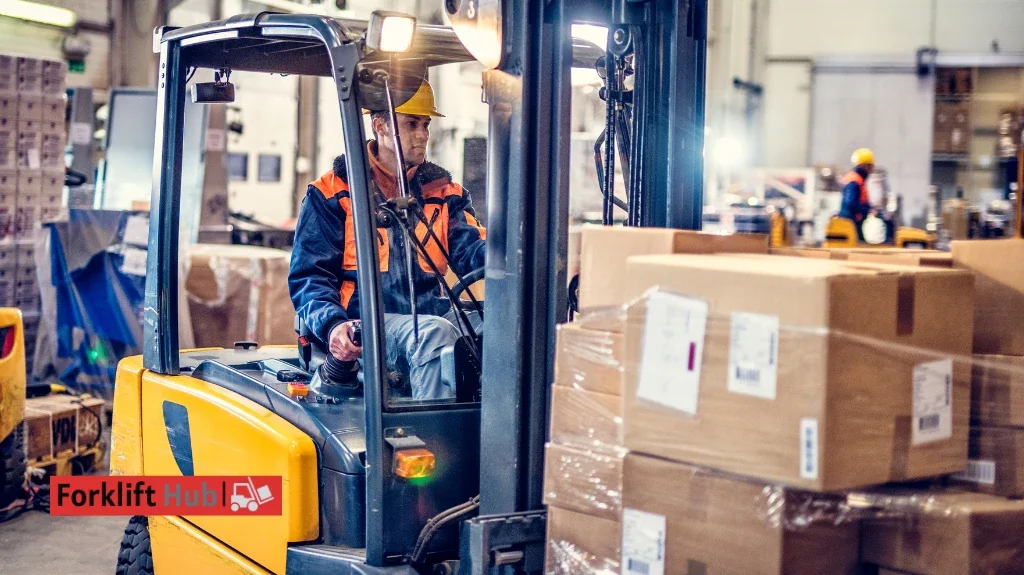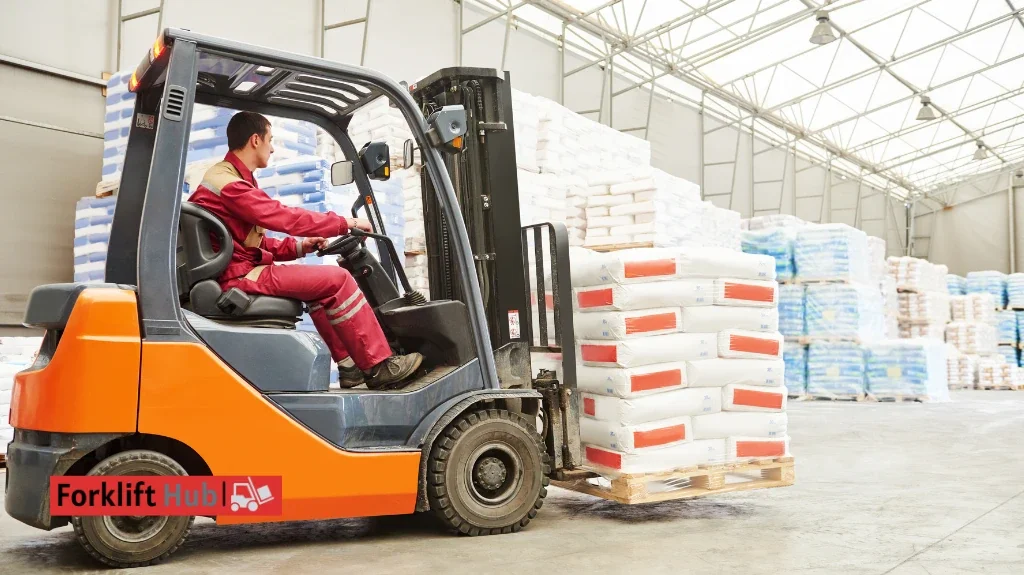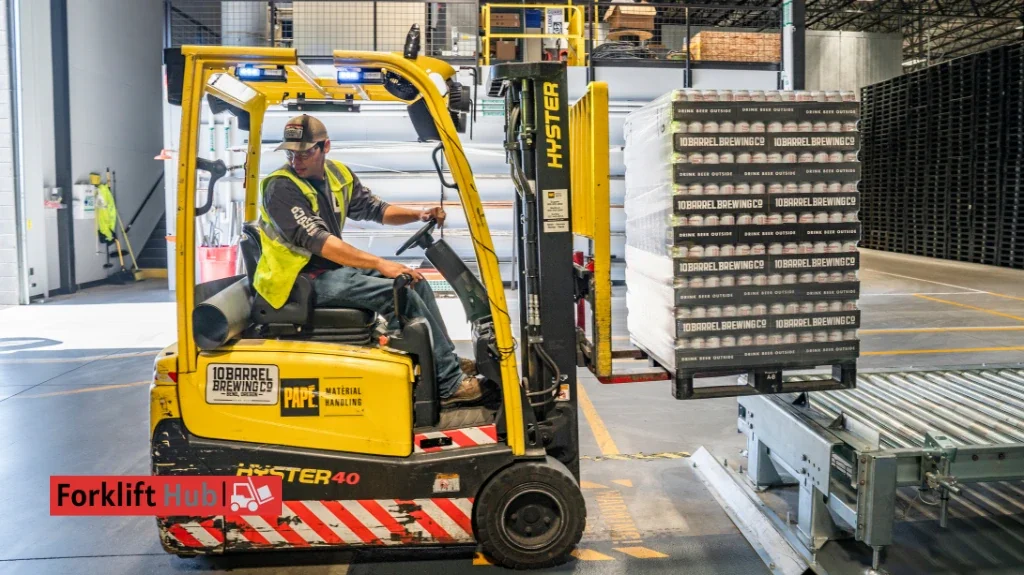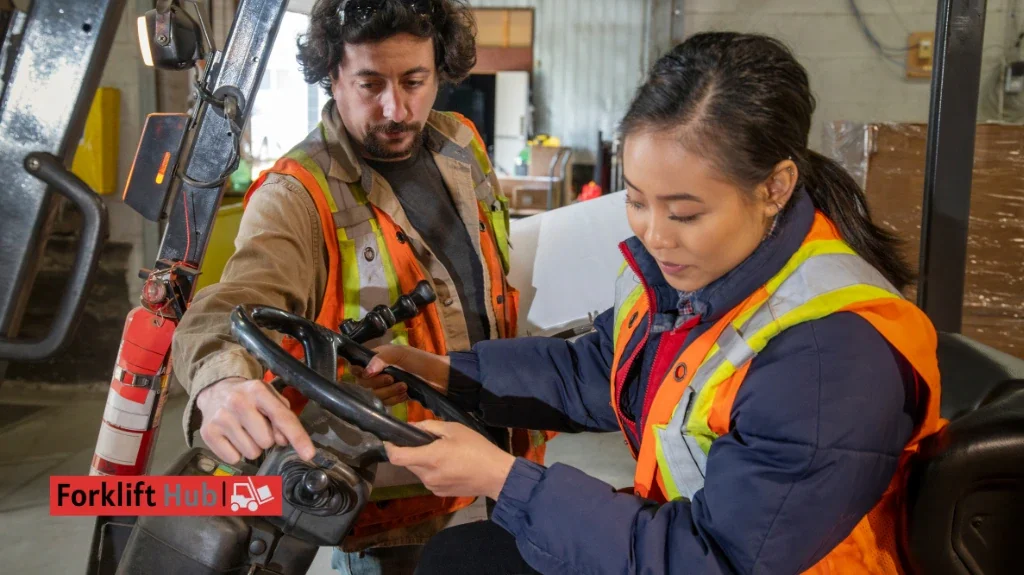How To Get A Forklift Operator Job
Thinking about starting a career as a forklift operator? Warehouses, factories, and distribution centers are always looking for reliable operators, and there’s never been a better time to get started. To land your first job, you’ll need the right certification, some hands-on experience, and a plan for finding opportunities.
In this guide, we’ll walk you through everything you need to know to get a forklift operator job and show how ForkliftHub can make the process easier.
Are you ready to kickstart your forklift career? Check out ForkliftHub today to find the right training and job opportunities near you.
Key Takeaways
Getting a forklift operator job starts with earning your certification through an accredited training program.
Forklift operators handle daily tasks like loading, unloading, organizing inventory, and following strict safety procedures.
Employers value certified operators because they are trained to work safely, efficiently, and in compliance with regulations.
Choosing the right training program is crucial. Look for accredited courses that offer hands-on experience and job placement support.
Gaining real-world experience, even through entry-level or temporary jobs, makes you more competitive in the job market.
Use job boards, staffing agencies, networking, and a strong resume to find forklift operator job opportunities.
ForkliftHub can help by connecting you to training programs, job listings, and career resources tailored to forklift operators.
Staying certified, pursuing advanced training, and maintaining strong soft skills will set you up for long-term success in the field.
How To Get A Forklift Operator Job
1. Understand the Role of a Forklift Operator
Duties on a Daily Basis
A forklift driver’s primary responsibility is to keep the warehouses, factories, and distribution centers in the best possible condition. Their typical daily tasks are primarily:
Loading and unloading goods: This involves carefully moving products onto trucks, pallets, and storage racks.
Arranging inventory: Arranging inventory includes placing things where they belong to turn the warehouse into a functional space and make it easily accessible.
Operating equipment safely: Following safety procedures and using the forklift to move material without causing it any damage is a key role of a forklift operator.
Conducting basic safety checks: Every day, you will need to check the forklift for faults before use to prevent accidents and downtime.
Key Skills Employers Seek
Good forklift operators need more than certification. You also need to have certain skills, including:
Attention to detail: Being gentle with the product and putting it away correctly is very important.
Coordination and control: Driving the forklift smoothly and accurately, even in small spaces, is a skill you must master.
Safety awareness: Adhering to correct procedures to safeguard themselves, coworkers, and inventory is vital for this job.
Why Certification is Important
Certified forklift operators are greatly valued by employers as certification indicates that the operator:
Has received training in safety and operating best practices.
Is equipped to handle equipment responsibly and minimize workplace accidents.
Is ready to work right away without lengthy on-the-job training.
Being a skilled and capable operator not only makes you a more valuable employee but also shows employers that you are responsible and committed to workplace safety.
2. Get Your Forklift Certification
Why Certification is Important
To start working as a forklift operator, you'll be required to have the necessary certification. Certification is required because:
Ensures safety: You'll be instructed on how to drive the forklift safely and avoid accidents.
Is compliant with the law: Certification is legally required in the majority of jurisdictions for operators before they can start working.
Increases employability: Certified operators are more hirable and may even be offered higher pay.
How to Get Certified
Certification is usually a combination of classroom and practical training. The process usually involves:
Classroom training: Learn safety regulations, equipment operation, and proper handling of materials.
Practical training: Practice driving and operating a forklift with instruction.
Testing: Complete a written and practical test to confirm your knowledge and skills.
Types of Forklift Certifications
Depending on your workplace, you may need to acquire certification in various types of forklifts, such as:
Sit-down counterbalance forklifts
Reach trucks
Pallet jacks
Specialized or heavy-duty forklifts
Acquiring the right certification will prepare you for the type of equipment that you will be using in your line of work, and it will make you a better candidate to potential employers.
3. Finding the Best Forklift Training Programs
Why the Right Training Is Important
Not all forklift training programs are equal. The right program helps you:
Get extensive hands-on practice.
Learn current safety protocols.
Receive a certification that employers trust.
Tips for Selecting a Training Program
When searching for forklift training, keep these important factors in mind:
Accreditation: Ensure the program is CCOHS-approved or endorsed by your local safety organization.
Hands-on training: Look for programs that include training on real forklifts.
Job placement assistance: Some programs connect graduates with employers or job openings.
Scheduling flexibility: Look for a program that fits your schedule and learning rate.
Price and length: Compare course price and length to find one that fits your budget and schedule.
Training Options
Local training facilities: These types of facilities offer face-to-face instruction and hands-on practice.
Online classes: Online courses teach theory and safety; they are also sometimes blended with local practical lessons.
Employer-based training: Some employers provide training to new hires.
Getting the right program is a valuable step toward certification and starting your career as a forklift driver.
4. Gain Experience
Start Small to Build Your Skills
Once you have received your forklift certification, the next thing to do is to gain experience on real-world job sites. Hiring managers like applicants who can demonstrate hands-on ability outside the classroom.
How to Gain Experience
Entry-level warehouse jobs: Start as a general labourer or material handler and progress to operating a forklift.
Seasonal or temporary work: Seasonal work might be available where you can operate forklifts with close supervision.
Job training on the job: Extra training is sometimes offered by employers to help new hires gain confidence.
Volunteering in an industrial setting: Some training partners or organizations may offer volunteer work experience for practice purposes.
Experience Matters
Getting experience will make you feel more at ease working in various environments.
Employers like applicants with proven, safe operating experience.
A solid track record reduces the need for extensive onboarding and makes you more competitive in the job market.
By pairing your certification with actual practice, you'll be well-equipped to hunt for full-time forklift operator positions.
5. How To Find Forklift Operator Job Opportunities
How To Find Forklift Operator Job Listings
Use Job Boards and Websites
The majority of forklift operator jobs are posted online. Look at top job websites such as:
Indeed, Monster, and ZipRecruiter: These are popular job boards that have plenty of forklift listings.
Industry-specific job boards: Some job boards cater to logistics, warehousing, or construction jobs.
Company websites: Large companies usually post openings on their careers page.
Work through Staffing Agencies
Staffing agencies often place employees in warehouse and logistics work. Both permanent and temporary job assignments can be secured with agencies. This is a short-term means of acquiring experience and contacts.
Network with Industry Professionals
Contact friends or acquaintances who already work in warehouses, factories, or distribution centers. Attend local job fairs or trade shows to speak with representatives from companies that employ forklift operators. Networking will most frequently lead you to doors of opportunities not advertised online.
Get Your Resume in Order
Employers would like to see more than a forklift certificate on your resume. Ensure your resume highlights:
Forklift certification type(s) you’ve earned.
Safety training and knowledge of workplace regulations.
Any related warehouse, logistics, or equipment-handling experience.
By using multiple job-search methods and presenting your skills clearly, you’ll increase your chances of landing a forklift operator position quickly.
6. How ForkliftHub Can Help You
Starting a career as a forklift operator can feel overwhelming, but you don’t have to navigate the process alone. ForkliftHub is here to make it easier by connecting you with the training opportunities you need.
Why Choose ForkliftHub?
Training program directory: Find certified forklift training providers in your area.
Career resources: Learn about certification requirements, safety updates, and career advancement tips.
With ForkliftHub, you can go from exploring certification programs to landing a forklift operator job faster and with less stress.
👉 Take the first step today. Visit ForkliftHub to find the right training and connect with employers who are ready to hire.
7. Additional Tips for Success
Beyond certification and experience, there are a few extra steps you can take to stand out as a forklift operator candidate.
Keep Your Certification Up to Date
Renew your certification as required by law or company policy. Staying current shows employers that you take safety and compliance seriously.
Pursue Advanced Training
Consider certifications for multiple types of forklifts, such as reach trucks or pallet jacks. Expanding your skills makes you more versatile and valuable to employers.
Focus on Soft Skills
Employers look for reliability, teamwork, and communication skills. Showing up on time, following instructions, and working well with others can set you apart.
Maintain a Strong Safety Record
Always follow workplace safety procedures. A clean safety record builds trust and opens the door to better job opportunities.
By going the extra mile, you’ll not only land a forklift operator job but also build a long-term career in the field.
For a complete overview of forklift certification, explore our ultimate guide to forklift certification here.
How To Get A Forklift Certification: Contact Forklifthub
Getting your forklift certification is the first step toward a successful career as a forklift operator. It ensures you have the skills, knowledge, and confidence to operate safely in any workplace. From filling out the ForkliftHub form to completing both classroom and hands-on training, every step prepares you for real-world forklift operation while meeting CSA safety standards.
Why Certification Matters
Unlocks job opportunities by proving your qualifications.
Boosts workplace safety for you and your team.
Gives peace of mind knowing you’re fully qualified for the equipment you’ll operate.
ForkliftHub makes it easy to find a course near you that fits your schedule and the type of forklift you’ll use. Take the first step today: fill out the ForkliftHub form, start your certification journey, and gain the skills and confidence to excel on the job.
*Disclaimer
This post is intended for informational purposes only and does not constitute legal or professional advice. Forklift certification requirements may vary by province, employer, and specific job site regulations. Always consult with your employer, local regulatory authorities, or a certified training provider to ensure compliance with current safety standards and legal requirements. ForkliftHub is not responsible for any liability or damages resulting from the use of this information.










